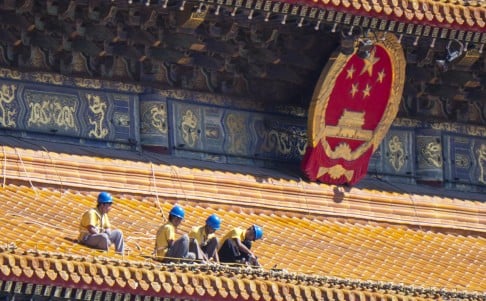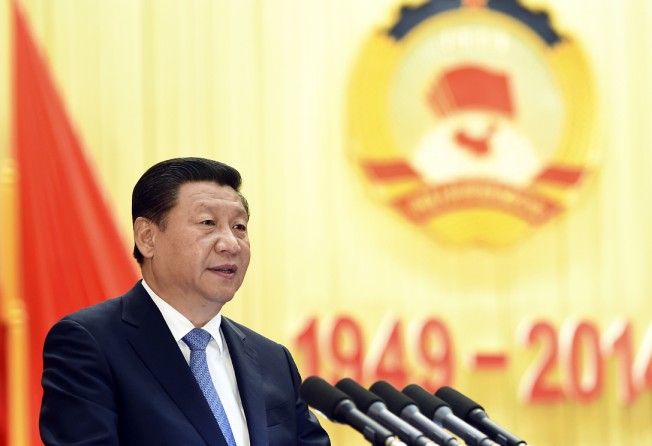
China's Xi Jinping supports 'democracy'... but not in the Western sense
When President Xi Jinping made at least two references to the concept in recent speeches, he wasn't talking about it in the Western sense

The two takeaway words were "consultative democracy" but the key message was gradual improvement, not radical reform.
So said analysts of comments made by President Xi Jinping in a keynote speech on Sunday to mark the 65th anniversary of the Chinese People's Political Consultative Conference.
In the speech, Xi highlighted the need to underpin what he called China's "consultative democracy" - or system of consultative conferences - as the country's unique way of fostering public consensus and reaching out to citizens on important matters.

The message was similar to one Xi delivered on September 5 to mark the 60th anniversary of the National People's Congress. In that address, Xi, who is also the general secretary of the ruling Communist Party, called on NPC members to strengthen the national legislature's role under the party's absolute leadership.
He didn't spell out any fundamental political change to restructure one-party rule
Zhang said the two speeches highlighted Xi's desire to improve the present system rather than introduce radical change.
Those improvements included realising some of the powers that are enshrined in law but never manifested.
"Xi's comments aim to realise some powers enjoyed by NPC delegates and CPPCC members, such as their right to supervise the government, to scrutinise the budget and to approve the appointment of government officials," Zhang said.
Others saw cause for optimism amid the socialist rhetoric on Sunday. Warren Sun, professor of Chinese Studies at Monash University, said that despite Xi's dismissal of election-based Western representative democracy "this is still an encouraging, and even refreshing speech in a subtle way".
"If Xi is true to his word, his immediate vision of political reform could surpass Deng Xiaoping's position of 35 years ago," Sun said, adding that he expected the CPPCC to play a greater role.
Hongyi Lai, a professor of Chinese politics at the University of Nottingham, said Xi might have been suggesting that the CPPCC could play a constructive role by exposing corruption and restraining the abuse of power.
"He probably also wants to rally the support of political elites, and the CPPCC is the embodiment of these elites," Lai said.
Steve Tsang, chairman of the School of Contemporary Chinese Studies at the same university, agreed that democracy in the Western sense of the word was not on the agenda. Xi's speeches, Tsang said, confirmed that China was developing a "consultative Leninist political model" that used the Maoist principle of "from the masses and to the masses" - the party collecting public opinion to formulate coherent ideas in "line with the party's priorities".
All these signs suggested that no radical political reform would be unveiled at the upcoming fourth party plenum, a gathering expected to focus on the rule of law, Zhang said. But he did expect some measures to let more party outsiders help shape policy.